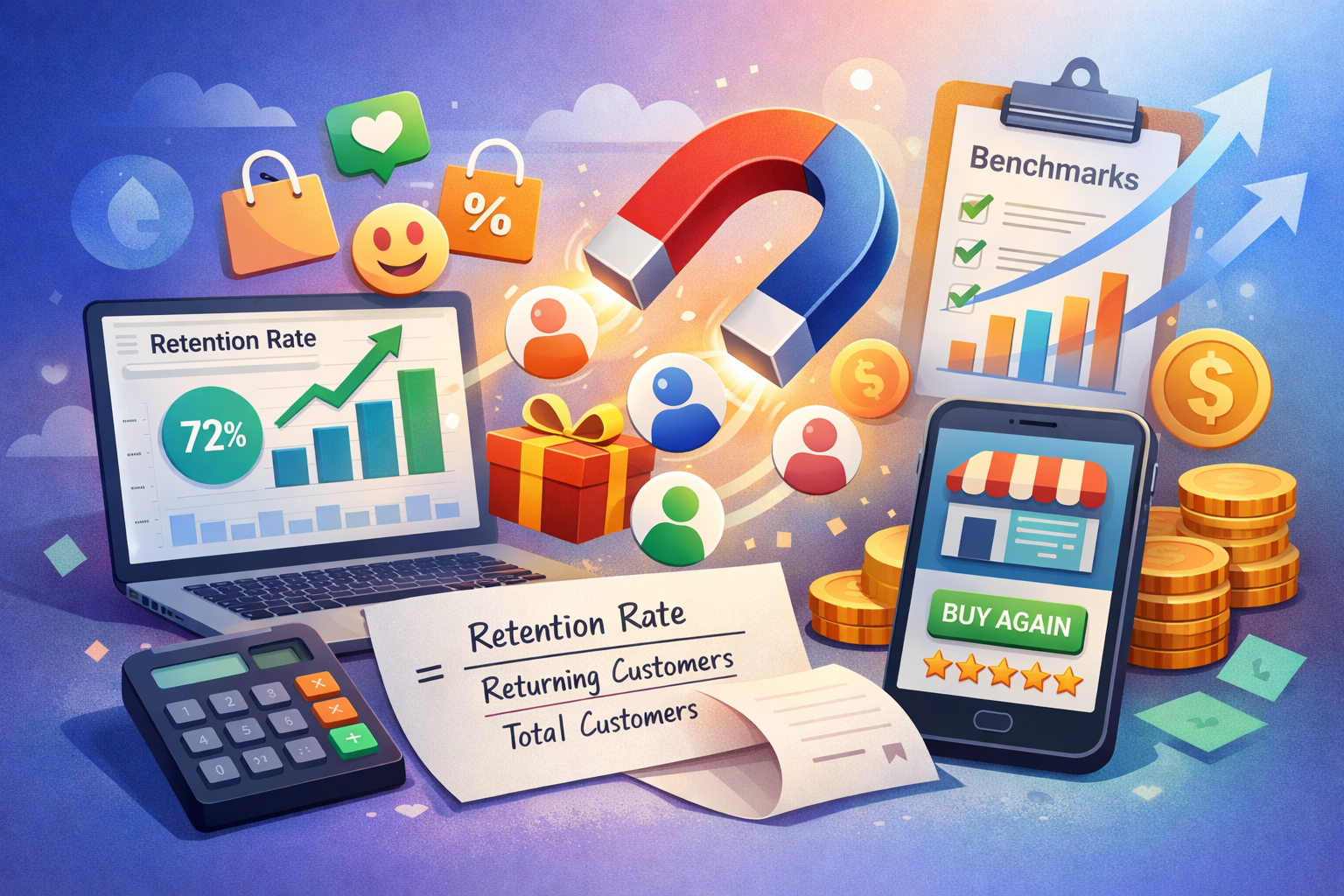Try Zipchat in Action!
Enter your store URL to see how Zipchat would behave.

In today's hyperconnected world, customer service has become a crucial aspect of any business's success. The ability to provide top-notch support to customers can make or break a company's reputation. However, customer service is not a one-size-fits-all approach. There are different types of customer service strategies and support channels that businesses can employ to meet the diverse needs and expectations of their customers. In this comprehensive guide, we will explore the various types of customer service and provide valuable insights into their benefits and implementation.
Overview of Customer Service Types
Omnichannel Customer Service
One of the most popular approaches to customer service in today's digital age is omnichannel customer service. This strategy involves providing consistent support across multiple channels, such as phone, email, live chat, social media, and self-service options. By offering a seamless experience, customers can effortlessly switch between channels without losing any information or encountering repetitive processes.
Omnichannel customer service aims to create a personalized and convenient experience for customers. It recognizes that customers may prefer different channels or have different needs at different stages of their customer journey. According to a study by Aberdeen Group, companies with robust omnichannel strategies retain an average of 89% of their customers, compared to only 33% retention for companies with weak or no omnichannel capabilities.
For example, imagine a customer named Sarah who starts her journey by browsing a company's website and adding items to her cart. Later, she decides to reach out for support through live chat to ask questions about the products. The support agent is able to access Sarah's browsing history and cart details, providing a seamless experience and personalized assistance. After the chat, Sarah receives an email summarizing the conversation and offering additional product recommendations based on her interests. This integration of channels enhances Sarah's overall experience and increases the likelihood of her becoming a loyal customer.
Proactive Customer Support Strategies
While reactive customer support involves addressing customer issues as they arise, proactive customer support strategies aim to anticipate and prevent problems before they happen. This approach involves analyzing customer data and behavior to identify potential pain points and proactively reaching out to customers to offer assistance or resolve issues before they become major concerns.
By adopting proactive customer support strategies, businesses can significantly reduce customer dissatisfaction. A study by Forrester Research found that proactive customer service resulted in a 10% reduction in customer churn. Additionally, it can help businesses build stronger relationships with customers and increase customer loyalty.
For instance, let's say a software company notices that a group of customers frequently encounters a specific error message. Instead of waiting for customers to report the issue, the company proactively sends out an email to affected customers, acknowledging the problem and providing a step-by-step guide to resolve it. This proactive approach not only prevents frustration but also demonstrates the company's commitment to customer satisfaction.
Self-Service Customer Support
Self-service customer support is rapidly gaining popularity among businesses and customers alike. This type of customer service allows customers to find answers to their questions or resolve issues on their own, without needing to interact with a support representative. Examples of self-service options include comprehensive online knowledge bases, FAQs, community forums, and tutorial videos.
Self-service customer support offers numerous benefits to both businesses and customers. For businesses, it can significantly reduce support costs by easing the workload of support agents and freeing up their time to handle more complex inquiries. For customers, self-service options provide convenience, immediate access to information, and the ability to troubleshoot issues at their own pace.
Imagine a customer named John who encounters a minor technical issue with a mobile app. Instead of waiting on hold for customer support, John visits the company's website and navigates to the self-service section. There, he finds a step-by-step troubleshooting guide with clear instructions and screenshots. Within minutes, John is able to resolve the issue on his own, saving time and frustration.
Furthermore, self-service options can also foster a sense of empowerment and independence among customers. By enabling them to solve problems autonomously, businesses empower customers to take control of their own experiences and build confidence in their ability to navigate the product or service.
Key Support Channels
Email Support
Email support has long been a staple in customer service. It allows customers to communicate their issues or inquiries in a detailed and asynchronous manner. Email support is especially useful for complex or sensitive issues that require thorough documentation or a more formal exchange of information.
According to a study by SuperOffice, 62% of customers prefer email as their primary communication channel with businesses. It offers the advantage of allowing customers to explain their problems in detail, attaching supporting documents or screenshots, and providing a record of the conversation for future reference.
When it comes to email support, response time is crucial. Customers expect prompt replies, and businesses must strive to meet those expectations. A study conducted by Forrester Research found that 41% of customers expect a response to their email within six hours. Therefore, it is essential for businesses to have a dedicated team of support agents who can efficiently manage and respond to customer emails in a timely manner.
Social Media Customer Service
In the age of social media, companies cannot afford to overlook its role in customer service. Social media platforms, such as Facebook and Twitter, have become channels where customers voice their opinions, seek assistance, or air their grievances. Consequently, businesses must be prepared to engage with customers through social media to provide timely and satisfactory solutions.
In a report by Sprout Social, 90% of surveyed consumers stated that they use social media to communicate directly with brands. Social media customer service offers the advantage of being highly visible, allowing businesses to showcase their commitment to customer satisfaction and resolve issues in a public forum. It is essential for businesses to monitor their social media channels diligently, respond promptly to inquiries, and provide helpful and friendly solutions.
One of the challenges of social media customer service is the need for quick and concise responses. With character limits and the fast-paced nature of social media, support agents must be skilled in providing efficient and effective solutions within a limited space. Additionally, businesses must be prepared to handle negative feedback or complaints on social media, as these can quickly escalate and impact their reputation.
Live Chat and Chatbots
Live chat has emerged as a popular choice for real-time customer support. It enables customers to engage in instant messaging conversations with support agents, saving them the time and effort of making a phone call or sending an email. Live chat offers the convenience of immediate responses, allowing customers to easily ask questions, seek clarification, or resolve issues without any disruptions in their workflow.
Chatbots, powered by artificial intelligence (AI), have also made their way into the customer service landscape. Chatbots can handle routine inquiries and frequently asked questions, providing instant responses 24/7. They can significantly reduce customer wait times and allow support agents to focus on more complex or personalized queries. According to Gartner, by 2022, 70% of customer interactions will involve emerging technologies such as chatbots.
Implementing live chat and chatbots requires careful planning and customization to ensure a seamless customer experience. Businesses must train their support agents to effectively use live chat tools and provide personalized and empathetic responses. Additionally, chatbots must be continuously updated and optimized to handle a wide range of customer inquiries accurately.
Effective Customer Service Strategies
Personalized Customer Support
In today's era of data analytics and customer relationship management (CRM) software, businesses have access to a wealth of customer information. Leveraging this data can enable businesses to deliver personalized customer support experiences that go beyond generic interactions. Personalized customer support involves tailoring support based on customers' preferences, purchase history, demographic information, or past interactions.
According to a study by Accenture, 75% of consumers are more likely to buy from a company that recognizes them by name, recommends products based on their preferences, or knows their purchase history. Personalized customer support can enhance customer satisfaction, foster loyalty, and drive repeat business.
For example, imagine a customer named Sarah who frequently shops online for athletic shoes. A company that provides personalized customer support would not only address her by name but also suggest new shoe releases based on her past purchases and preferences. This level of personalization makes Sarah feel valued and understood as a customer, increasing her likelihood of becoming a loyal advocate for the brand.
Customer Service Philosophies
While customer service strategies and support channels are vital for success, a strong customer-centric philosophy is the foundation of exceptional customer support. Customer service philosophies encompass the values, beliefs, and principles that guide how a business interacts with its customers.
Companies with a customer-first philosophy prioritize the needs and satisfaction of their customers. This approach involves fostering a customer-centric culture within the organization, providing ongoing training to support agents, and empowering them to make decisions that benefit the customer. Research by PwC found that 32% of customers will stop doing business with a brand they love after one bad experience.
One company that exemplifies a customer-first philosophy is Zappos, an online shoe and clothing retailer. Zappos is known for its exceptional customer service, which goes above and beyond to ensure customer satisfaction. Their customer service representatives are trained to provide personalized support, even if it means spending hours on the phone with a single customer. This commitment to customer-centricity has earned Zappos a loyal customer base and a reputation for outstanding service.
FAQ
What are the benefits of using Zipchat AI for customer service?
Zipchat AI is a cutting-edge AI-powered customer service solution that offers numerous benefits for businesses. Firstly, its advanced natural language processing capabilities enable it to understand and interpret customer inquiries accurately. This ensures that customers receive prompt and accurate responses to their questions or issues.
Moreover, Zipchat AI incorporates machine learning algorithms that continuously improve its performance over time. This means that as it interacts and learns from each customer conversation, it becomes more proficient at providing accurate and relevant support. With Zipchat AI, businesses can enhance their customer service efficiency, reduce response times, and ultimately, deliver an exceptional customer experience.
But that's not all. Zipchat AI also offers a range of features that further enhance its effectiveness. For example, it can analyze customer sentiment and emotions, allowing businesses to identify and address any negative experiences promptly. Additionally, it can handle multiple customer inquiries simultaneously, ensuring that no customer is left waiting for assistance.
How does Zipchat AI integrate with ecommerce platforms?
Zipchat AI offers seamless integration with popular ecommerce platforms, such as Shopify, Magento, and WooCommerce. This integration enables businesses to leverage Zipchat AI's customer service capabilities within their existing ecommerce ecosystem.
Once integrated, Zipchat AI can assist customers with order tracking, product inquiries, returns, and other common ecommerce-related questions. By automating these routine tasks, businesses can free up their support agents' time to focus on complex inquiries, while ensuring that customers receive timely and accurate assistance.
Furthermore, Zipchat AI's integration with ecommerce platforms goes beyond just customer support. It can also provide valuable insights and analytics to help businesses optimize their ecommerce operations. By analyzing customer interactions and feedback, Zipchat AI can identify trends, preferences, and areas for improvement, allowing businesses to make data-driven decisions and enhance their overall ecommerce strategy.
With Zipchat AI's seamless integration, businesses can create a unified and efficient customer service experience across all their ecommerce channels, leading to increased customer satisfaction and loyalty.
Transform Your Ecommerce Experience with Zipchat AI
Ready to elevate your customer service and boost your sales? Zipchat AI is here to revolutionize the way you interact with your ecommerce customers. With our advanced AI Chatbot, you can proactively engage visitors, skyrocket your conversion rates, and provide exceptional customer support around the clock. Merchants using Zipchat AI experience an impressive average of 13.4% Chat-to-Sale conversion rate. Don't miss out on transforming your ecommerce business. Start your 7-Day Free Trial today and witness the power of Zipchat AI in action!







